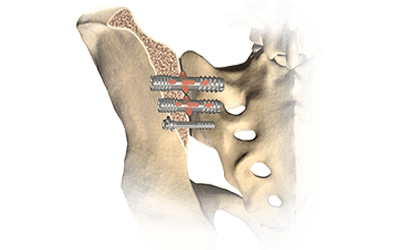How To Adapt Your Résumé To Land Neuromonitoring Jobs…
If you’ve been a neuromonitoring professional for some time, chances are you’ve been tempted to check out some other neuromonitoring jobs at some point. I mean, the grass is always greener, right? For those serious about making the move to another neruomonitoring company or in-house program, I’ll show you how you might go about beefing up your résumé.
If you’re looking to get into IOM monitoring, and want to impress these neuromonitoring companies, you may not know what triggers and turn-offs these companies are looking for. I’ll show you how to get an unfair advantage over other new applicants, and land that sometimes difficult-to-obtain first neuromonitoring job.
But first things first…
No matter what your experience, these companies are looking for a competent, PROFESSIONAL worker. That means you must always be conducting yourself in such a manner; your résumé is no exception.
There’s a time and place for purposeful and accidental misspellings (like spelling intraoperative neuromonitoring as intra operative neuromonitor so your blog ranks better in the search engines for terms like intra operative neuromonitor), overly used, made up punctuation used for dramatic effect… like I just did here, as well as horribly, unnecessarily long run on sentences that never really get fully read (like this one, and the reason being is that the next sentence probably won’t make sense, since my point was written so long ago). Your résumé is not one of those times.
Your resume’s first impression isn’t the content… it’s the format.
Make it clean. Make it concise. Make it easy on the reader. Here’s some good resume rules to go by to get that professional look. That should give your résumé a template for the structure, as well as how to punctuate. When you’re done, run it through a grammar and spelling check.
But before you even start typing out your résumé, it’s time to get started…
Beefing Up Your Résumé
Now that you know how your résumé should look, it’s time to fill in the blanks.
For the veterans, it’s about listing your experience, qualifications, training, certifications, modalities you’re proficient in using, management experience, etc.
But that’s what everyone does. And if you’re neck and neck with another candidate, wouldn’t it be nice to have some sort of edge? Those extras that put you over the top. Here’s a list of some things to get you started:
- Become a writer – publish some articles in professional journals, write articles for associations, contact owners of established neuromonitoring blogs and ask to do a guest post or interview about neuromonitoring and/or write a IOM book. It looks great to be so active in the field. Plus, it’s a great way to show off your stuff before they even meet you for an interview.
- Become the “go-to” guy/gal – help others out that have questions. I do it not just on my own blog (like these post here and here), but also questions on linkedin, I give out resources on Google plus, respond to emails, phone calls, text. It’s really a win-win. The people asking the questions get answers, and when your future employer Googles your name, they see you as an authority. Not bad.
- Become an expert witness– this one’s not for everyone, and not easy to get into. But having “expert witness” infers that your are just that… an expert.
- Become a speaker – again, not easy to get into unless you start publishing papers and get active in the political scene. But being a presenter at these national meetings is nice little bullet point to have on that résumé.
- Become a rainmaker – want to become the most invaluable asset to a company? Be the person that brings in new business. How nice would it look for you to show that you obtained X number of accounts, creating XXX additional cases per year, increasing profits by X%. If you’re good at that, you wouldn’t even need to know how to power up a neuromonitoring machine. If you get really good at it, you won’t even need a résumé. Just start up your own company.
Triggers and Turn-offs Neuromonitoring Companies Look For…
In this section, I’m going to discuss what neuromonitoring companies like to see, and what they consider red flags. While this might guide you one way or another, don’t feel like it’s mandatory. And please, don’t lie about it if it doesn’t apply to you.
What IOM companies hate to see:
- Jumping from IOM job to IOM job – they are hiring you to make a profit. If the last couple companies couldn’t, that’s a risk not worth taking.
- Inadequate training or unrelated background – it takes time to train someone. During that time, the company is paying out a salary and other expenses. The quicker you can get through that initial period, the sooner they recoup their investment. That’s why chiropractors, audiologist, PhDs are getting scooped up left and right.
- Unwillingness to travel – The more senior people in the company might be able to get away with only going to the hospital 5 minutes from their house, but not the new hire. Learn to love the open road (and maybe even the friendly skies), or look for in-house programs at a hospital.
- Not willing to take on-call hours – Maybe if you are trying to get a per diem gig you can get out of it, but we’re not in a 9-5 job. You’re going to work unpredictable hours, and most likely have to be on some sort of call. Embrace it.
- Poor English – if English is not your first language, make sure you speak it well. Too many brilliant foreign born candidates get passed up because of the language barrier. I would go as far to say that if your résumé shows you studied at a foreign school, it’s going to raise a flag. Be ready to have your English critiqued on the interview.
What IOM companies love to see:
- Experience, experience, experience. With different modalities, different cases, different equipment. See it all, do it all, know it all.
- Credentials. Get your CNIM, no matter what your background. If you can sit for the DABNM, go for that one too.
- Comfort with the OR. It helps if you’ve been in the hospital setting, so mention that on your résumé. Some people talk about how interested they are, and then walk away because it’s too icky in the OR.
- You can handle stressful situations – when the @%$# hits the fan, they want to know that you’ll tell the surgeon something is wrong instead of just sit in your chair and hope it goes away. The surgeon never wants to hear things are going wrong, and will almost always second guess you. Some will make things very awkward for you. It’s never fun. You have to be able to think clearly, and react fast. Time matters when things are going bad.
- Have an actual interest in your work – they know they’ll keep you longer if you actually like the work. One fear that I’ve heard a lot (being a DC) is that they are afraid of hiring chiropractors and audiologist, because they can just go back to what they were doing before. It’s true, so make it’s known that you’re into neuromonitoring for the long haul.
There’s more to it than that, especially in the interview, but this post is well over 1000 words and needs to be stopped. But before I do, in case you glossed over it in the “Become a writer” section of this post, I would entertain putting guest blogger on the site. So contact me if that’s something that interest you and we’ll go over some details.
Keep Learning
Here are some related guides and posts that you might enjoy next.
How To Have Deep Dive Neuromonitoring Conversations That Pays Off…
How To Have A Neuromonitoring Discussion One of the reasons for starting this website was to make sure I was part of the neuromonitoring conversation. It was a decision I made early in my career... and I'm glad I did. Hearing the different perspectives and experiences...
Intraoperative EMG: Referential or Bipolar?
Recording Electrodes For EMG in the Operating Room: Referential or Bipolar? If your IONM manager walked into the OR in the middle of your case, took a look at your intraoperative EMG traces and started questioning your setup, could you defend yourself? I try to do...
BAER During MVD Surgery: A New Protocol?
BAER (Brainstem Auditory Evoked Potentials) During Microvascular Decompression Surgery You might remember when I was complaining about using ABR in the operating room and how to adjust the click polarity to help obtain a more reliable BAER. But my first gripe, having...
Bye-Bye Neuromonitoring Forum
Goodbye To The Neuromonitoring Forum One area of the website that I thought had the most potential to be an asset for the IONM community was the neuromonitoring forum. But it has been several months now and it is still a complete ghost town. I'm honestly not too...
EMG Nerve Monitoring During Minimally Invasive Fusion of the Sacroiliac Joint
Minimally Invasive Fusion of the Sacroiliac Joint Using EMG Nerve Monitoring EMG nerve monitoring in lumbar surgery makes up a large percentage of cases monitored every year. Using EMG nerve monitoring during SI joint fusions seems to be less utilized, even though the...
Physical Exam Scope Of Practice For The Surgical Neurophysiologist
SNP's Performing A Physical Exam: Who Should Do It And Who Shouldn't... Before any case is monitored, all pertinent patient history, signs, symptoms, physical exam findings and diagnostics should be gathered, documented and relayed to any oversight physician that may...








